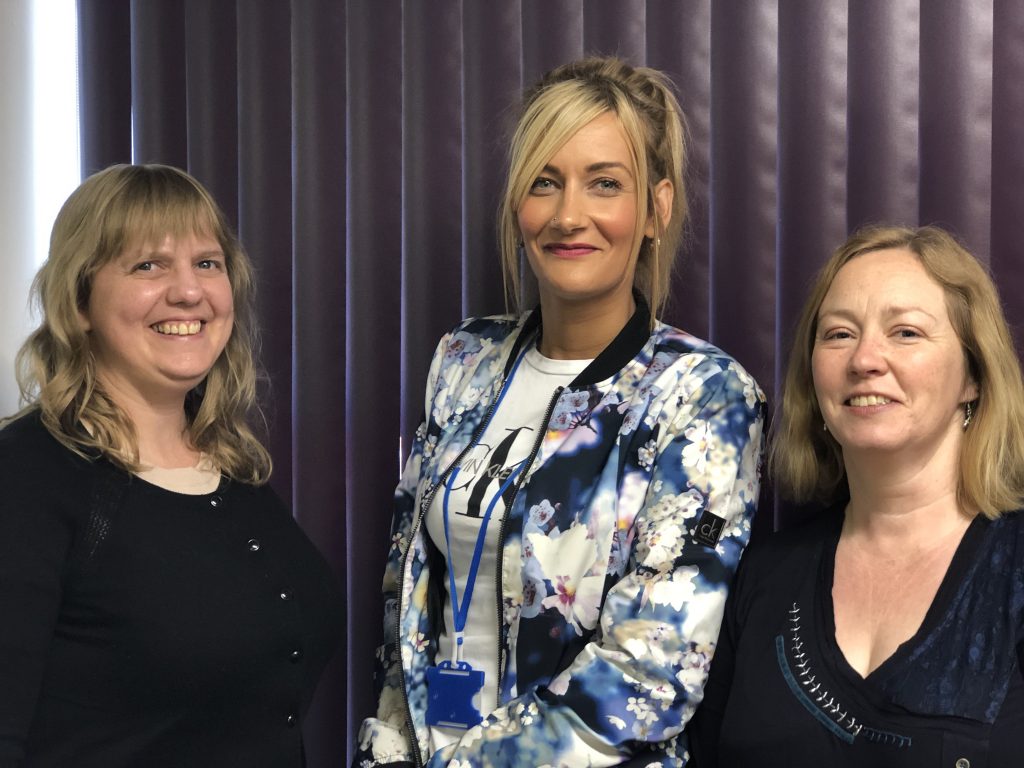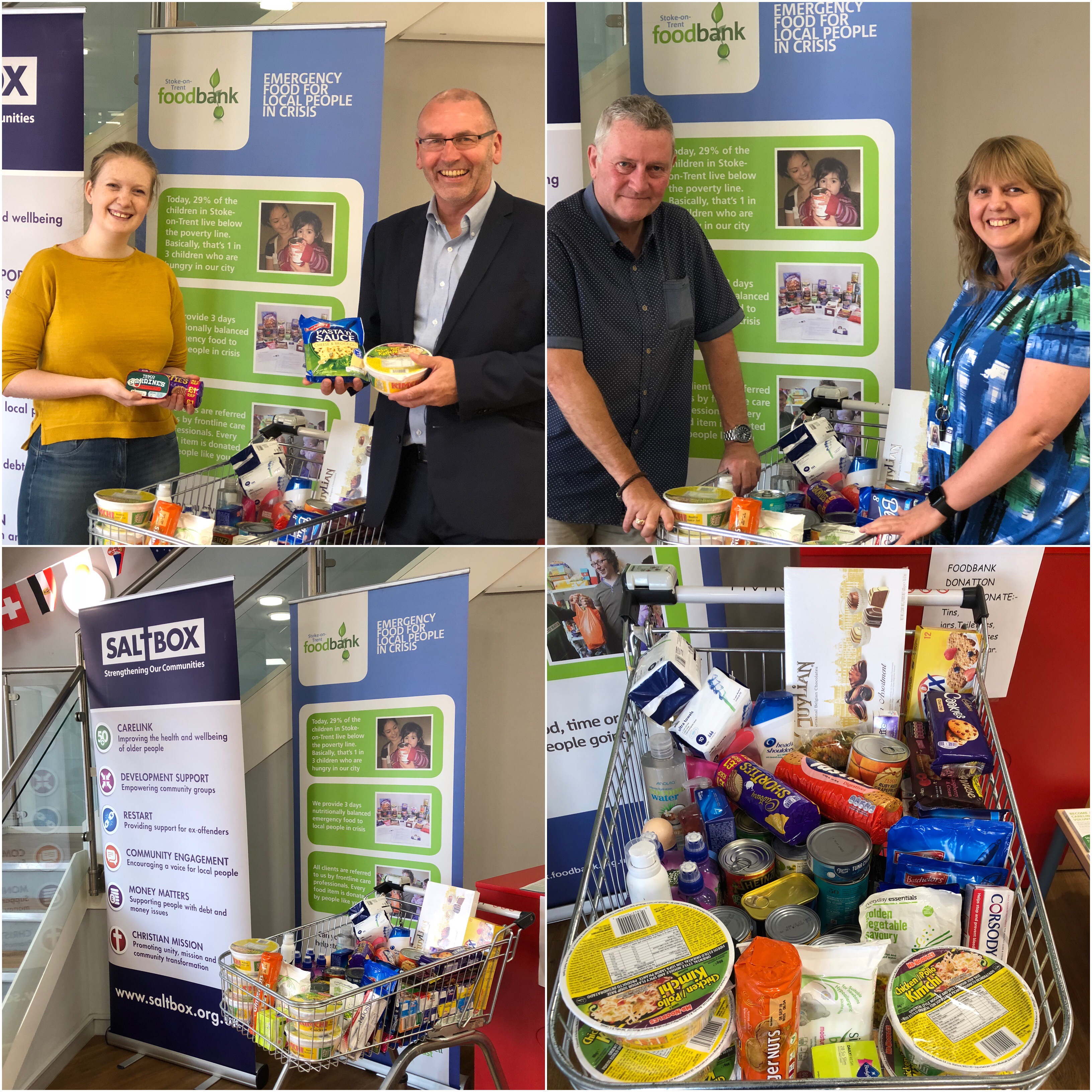Our Money Matters service provides practical help with debt relief and benefits advice for users of Stoke-on-Trent foodbank. As part of Volunteers Week 2019 we sat down with two of our Debt Advice Volunteers, Lisa and Sarah, to learn more about the role. Money Matters is always on the lookout for new volunteers. If you can spare a day or two each week to help local individuals struggling with debt, Money Matters can offer you 1) a chance to join our friendly, qualified team, 2) full training by Community Money Advice on the Generalist Advice course to level 2, and 3) your expenses paid. To find out more, please get in touch with Mary-anne Rapson at: maryanne@saltbox.org.uk or call 07880 795304.

Our Money Matters team, Mary-anne, Lisa and Sarah
Where did you first hear about Money Matters?
Lisa: On the Saltbox website. I was looking for volunteer roles in debt advice and Money Matters was the first one that I came across.
Sarah: I first discovered Money Matters when I was doing a Google search. I was looking for volunteering roles in the Stoke-on-Trent area. I wanted something that would be interesting and a challenge that I hadn’t done before. I’d previously volunteered at CAB (Citizens Advice Bureau) and a couple of mental health charities.
What does a typical week look like with Money Matters?
Lisa: It involves attending various food banks around Stoke-on-Trent, engaging with clients. If somebody requires budget or debt advice you sign them up as a client, then you work with the creditors on their behalf, negotiating repayments. Overall we give clients budgeting advice to help them manage their financial affairs better.
Sarah: The great thing about Money Matters is you never know what you’re going to get. Every day is different and every week is different. Sometimes you come to a food bank and it’s really busy. Other times it’s quiet and you can have a much more in-depth conversation with a client. There’s plenty of variety and situations to get involved in.
Are there any cases that have made you proud to work for Money Matters?
Lisa: One family that I worked with found themselves in quite substantial debt due to a bereavement. A member of the family also lost their job because of this. I helped them apply for fuel and water bill grants to reduce expenditure. The client eventually got a new job and things improved for them.
Sarah: I once helped a client who missed out on their benefits money because they couldn’t make an interview due to depression. We wrote a letter to the tribunal centre, explaining the situation. On the back of this, the client got a new tribunal date. We went along to represent them and soon after they got their money reinstated. It felt so wonderful to make a difference for somebody who had been struggling with mental health.
What’s the best thing about volunteering?
Lisa: The first-hand experience you gain while working with clients. Also, all of the skills, including communication, that you pick up while working as part of a team. You meet so many different people in this role.
Sarah: The amount that I’ve been able to learn while doing the job. I hadn’t done debt advice before so I had the chance to learn new computer skills as part of the job. I also did some online courses. It’s been very interesting and quite empowering to understand how various processes work. You learn how people get into debt, and how some companies exploit people who are already on low income via payday loans. Overall you learn how to help people get their finances back under control.
What advice would you give to potential volunteers?
Lisa: I’d say definitely go for it. The experience and training that you pick up is invaluable. It also helped me get a full-time job as I used my experience working with real-life Money Matters clients on my application. Volunteering helped me to secure employment.
Sarah: I think definitely go for it. You can volunteer at a lot of different levels. You can shadow Mary-anne (our team leader) and help her out with phone calls, or you can get fully trained up on benefits and debt advice, becoming a full-time debt advisor. In terms of development, you can take it as far as you want. It’s so interesting and really rewarding work. You also get to know how food banks work and meet some fantastic people along the way. It’s also a great thing to put on your CV!


